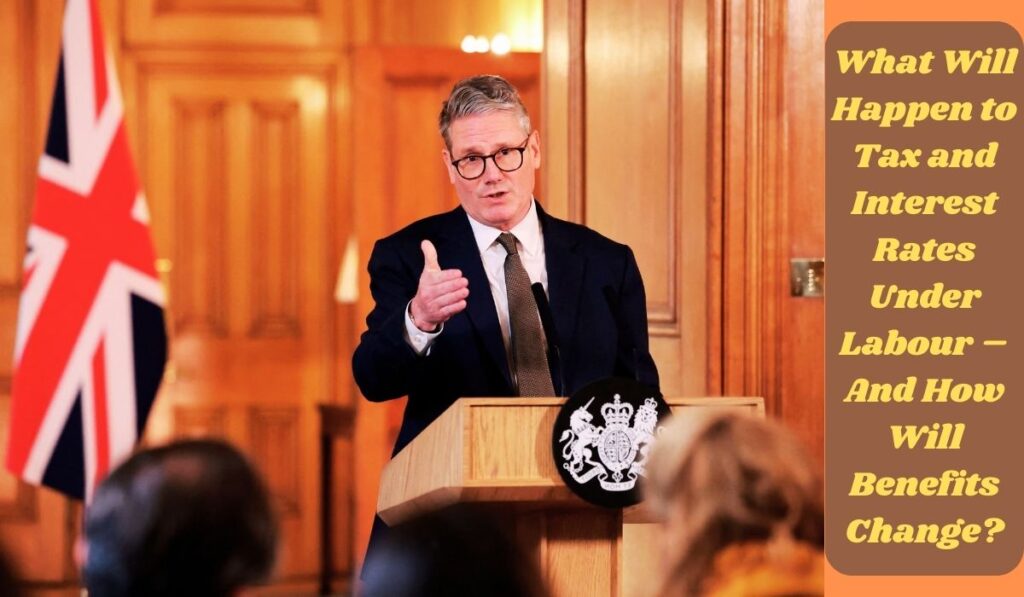Overview
As the political landscape shifts, the policies surrounding tax, interest rates, and benefits come under scrutiny. Understanding these changes is essential for planning both personal and business finances. In this comprehensive analysis, we will delve into what could happen to these critical economic indicators under a Labour government.
Labour’s Approach to Taxation
Income Tax Reforms
Labour’s manifesto often emphasizes fair taxation, which usually translates into higher taxes for the wealthiest. The party has proposed:
- Raising the top income tax rate for those earning over a certain threshold.
- Increasing the capital gains tax to align it more closely with income tax rates.
- Introducing new tax bands for ultra-high earners to ensure a more progressive tax system.
These measures aim to reduce income inequality and provide more funds for public services. However, they also raise concerns among high-income individuals and businesses about potential disincentives for investment and entrepreneurship.
Corporate Tax Changes
Labor’s stance on corporate taxation involves:
- Raising the corporate tax rate to generate additional revenue.
- Implementing stricter tax avoidance measures, targeting multinational corporations to ensure they pay their fair share.
- Encouraging green investments by offering tax incentives for companies that invest in environmentally friendly technologies and practices.
This approach aims to create a fairer business environment while promoting sustainability. However, it may also lead to increased operational costs for businesses, which could impact their profitability and competitiveness.
Interest Rates and Monetary Policy
Influence on the Bank of England
While the Bank of England operates independently, government policies can influence its decisions. Under Labour, we might see:
- A focus on low interest rates to stimulate economic growth and support public investment.
- Potential changes in the Bank’s mandate, emphasizing not only inflation control but also employment and economic stability.
Implications for Borrowers and Savers
- Borrowers could benefit from lower interest rates, making mortgages and loans more affordable. This could prompt expanded purchaser spending and venture.
- Savers, however, might face lower returns on savings accounts and fixed-income investments. This could impact retirees and those relying on interest income.
Changes to Benefits and Welfare
Universal Credit and Welfare Reforms
Labour has been critical of the existing welfare system and has proposed several changes:
- Abolishing Universal Credit and replacing it with a more straightforward system aimed at reducing poverty and bureaucracy.
- Increasing benefit levels to ensure they are sufficient to meet living costs, particularly for the most vulnerable groups.
- Implementing child benefit increases and restoring elements of support removed by previous administrations.
Impact on Families and Individuals
- Low-income families could see a significant boost in their disposable income, reducing poverty levels and improving quality of life.
- Disabled individuals might benefit from more tailored support and higher benefit levels, addressing long-standing issues of inequality and insufficient assistance.
Employment Support and Training
Labour emphasizes improving employment opportunities through:
- Enhanced job training programs to equip people with skills relevant to the modern economy.
- Support for the unemployed, including better job matching services and incentives for employers to hire long-term unemployed individuals.
Economic Growth and Public Spending
Investment in Public Services
Labour’s economic strategy typically includes:
- Significant investment in public services, such as healthcare, education, and transportation, to drive long-term economic growth.
- Funding infrastructure projects to create jobs and improve the country’s competitiveness.
Balancing the Budget
- Increased public spending will likely be balanced by higher taxes on the wealthy and corporations, aiming to maintain fiscal responsibility.
- Reducing the national debt is also a priority, but Labour may prioritize social investment over immediate debt reduction.
Conclusion
Understanding Labour’s potential impact on taxes, interest rates, and benefits is crucial for individuals and businesses alike. Higher taxes on the wealthy and corporations, changes in interest rate policies, and substantial welfare reforms are central to Labour’s economic vision. These changes aim to create a more equitable society, though they come with challenges and potential trade-offs.

